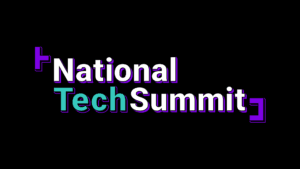We so excited to bring you live updates and highlights from the 2024 National Tech Summit! Join us over the next 3 days as we capture the most engaging sessions, thought-provoking discussions, and insights shared by industry leaders.
Day 1

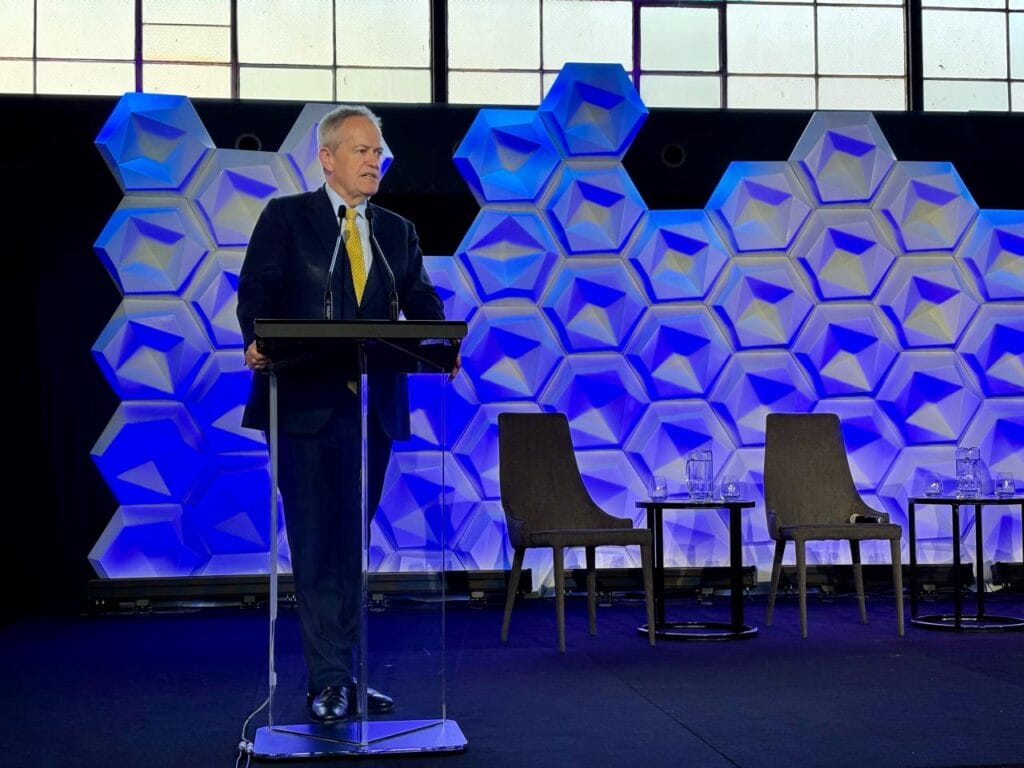
The Hon Bill Shorten MP addresses the importance of government in rebuilding the trust of Australian citizens in both government and technology.
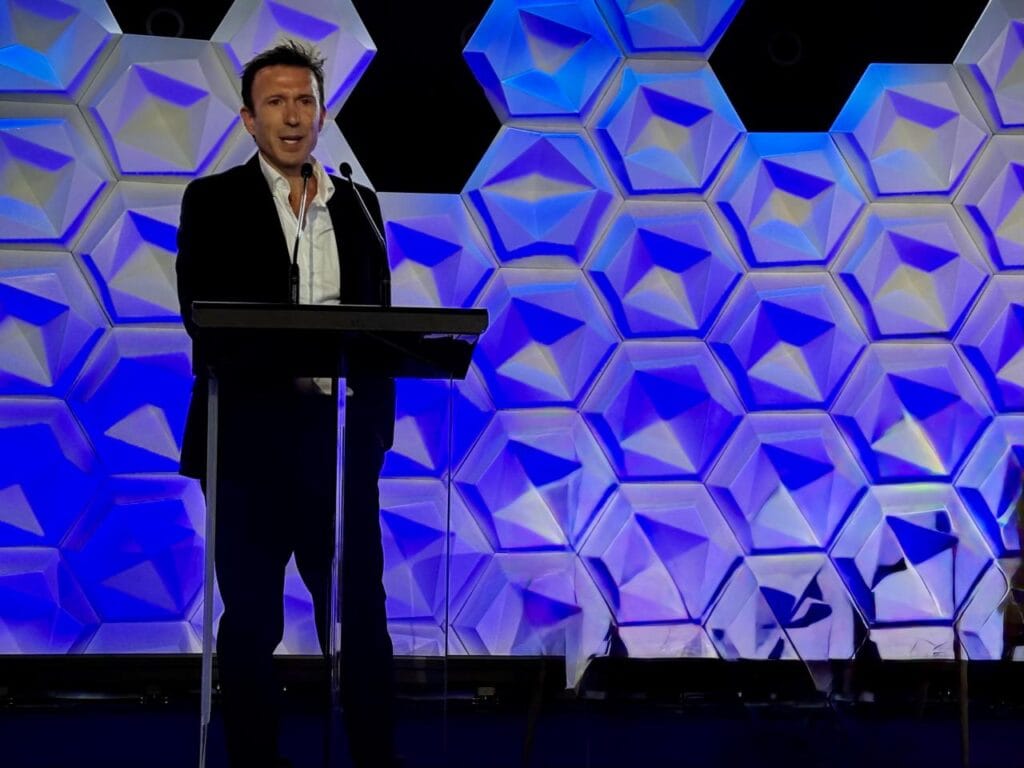
“There’s no such thing as a tech company anymore. Every company is a tech company these days.” Key words from TCA Board Director, Anthony Eisen.
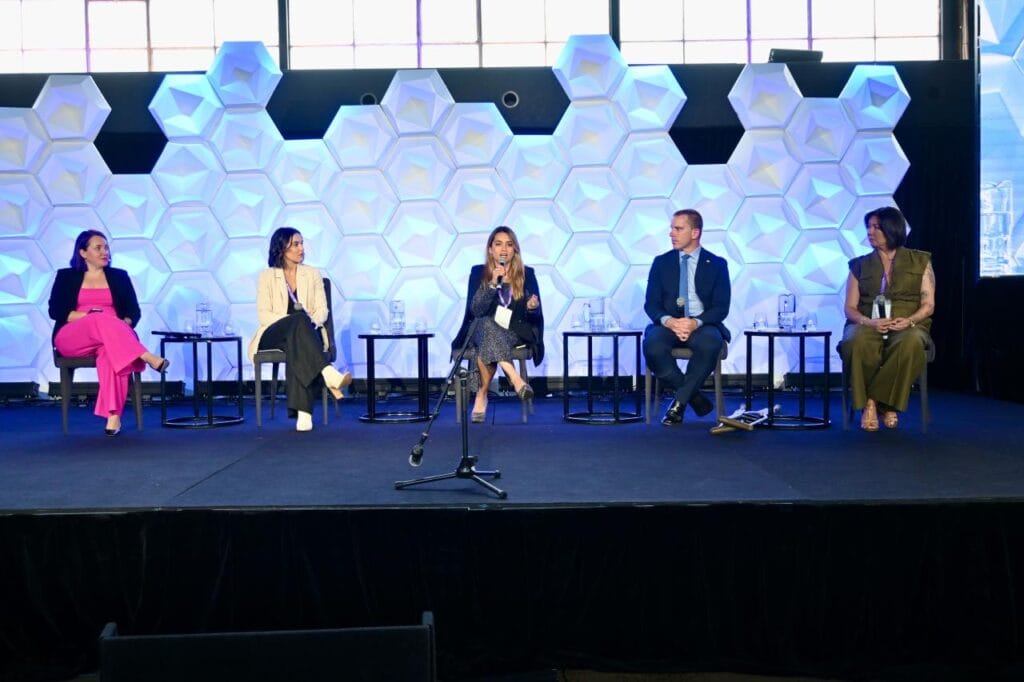
Some amazing insights from our panel on Diversity and Inclusion.
- If Australia wants to be competitive on a global stage, we need to be a leader in equity. Getting there will not be simple or fast – but it is possible.
- We need to work with people who make the best decisions, not the biased ones.
- Solving the DEI problem needs leadership across the organisation. It needs a whole of organisation approach.
Thanks Aubrey Blanche-Sarellano, Jakub Zverina, Emma Jones, Vinisha Rathod and Chenoa Stockton!
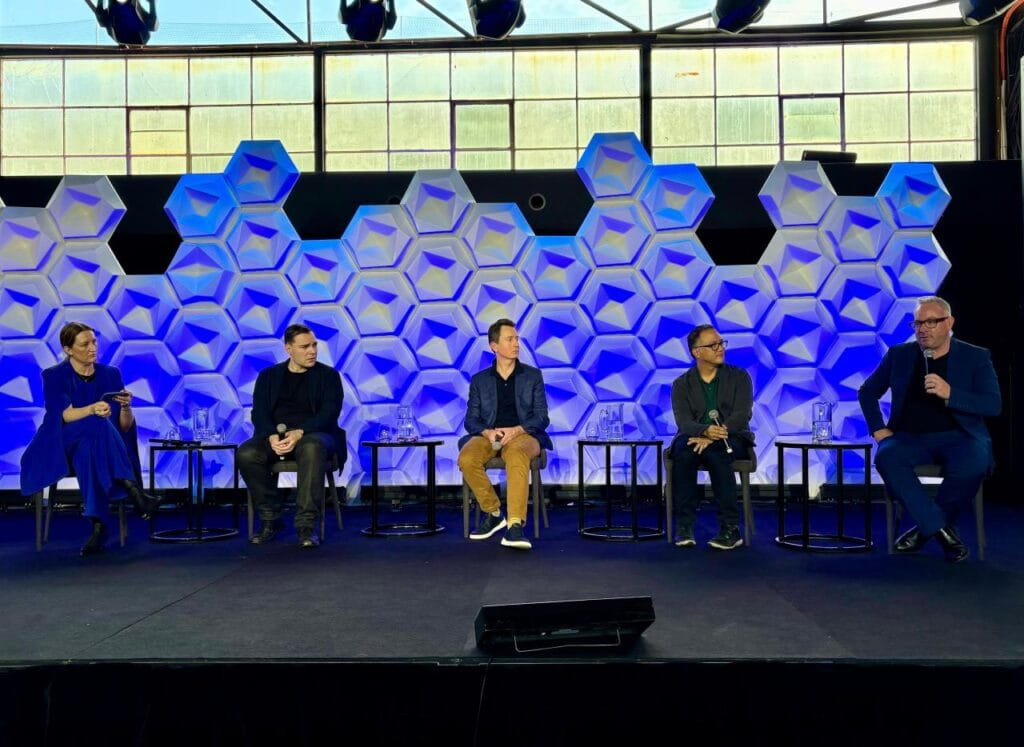
Another great panel on Australia’s tech innovation scene. Key takeaways:
- Australia downplays its global role in technology. Australia needs to stop underselling itself, and step it up. We are a bigger player in the world than we give ourselves credit for.
- Both meaningful investments and bets without ROI expectations in technology are needed. This needs to be embedded within the culture of an organisation to innovate.
- Energy, sustainability are also areas we should invest in. Australia needs to step it up when it comes to Antarctica and we can do more in space.
Thanks to Dr Catherine Ball, Brendan Hopper, Julian Lincoln, Peter Scougall, Andrew Leong!
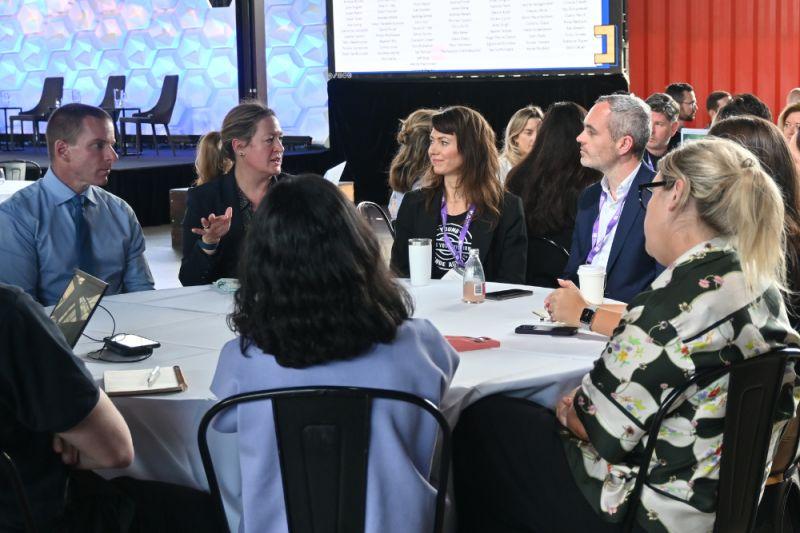
We love seeing our Partners Forum and tech community come together to identify issues and opportunities within the tech ecosystem and how to address them through practical initiatives under key workstreams including talent and skills, investment, innovation and adoption.
Huge thanks to our facilitators:
– Lynn Thompson, QBE Ventures
– James Posnett and Blair Beaton from ASX
– Kwok Tang and Claire Thompson from Herbert Smith Freehills
– Bob Williams from Lockton
– Jane Adams from Commonwealth Bank
– Jo Cantle CAHRI from the Australian Public Service Commission
– Frank Coletta FAICD, Australian Technology Network of Universities (ATN Universities)
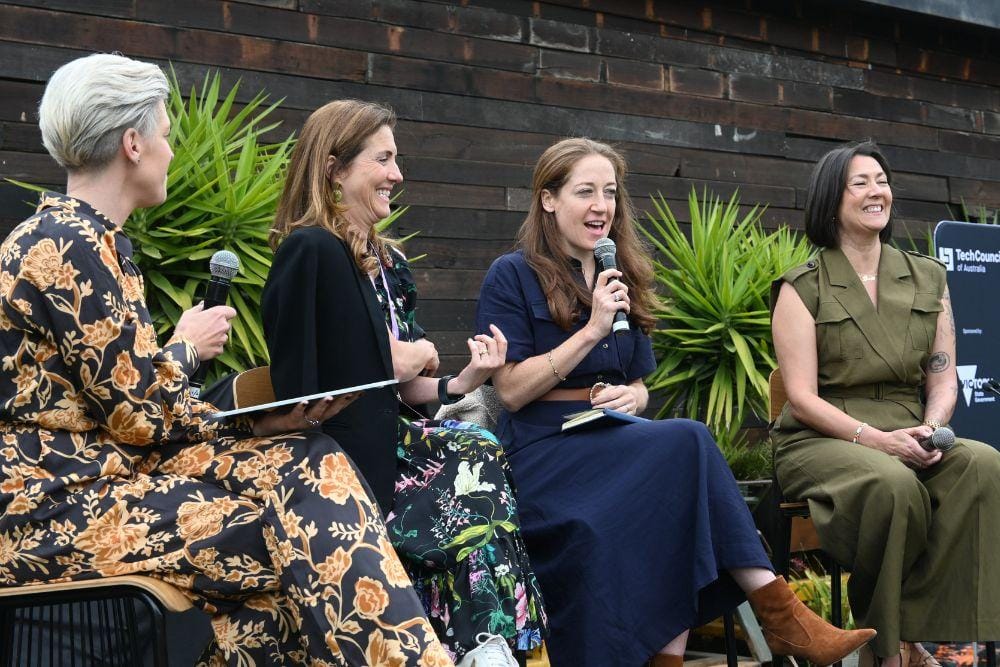
We’ve saved the best for last! Thank you to our T-EDI Standards launch panellists: Laura Ford, Managing Director, Indeed; Amanda Anderson, Global Head of Public Policy and Government Relations, Block; TCA Board Director and PEXA Group CTO, Eglantine Etiemble; and Project F CEO Emma Jones.
Learn more about the T-EDI Standards: https://lnkd.in/gA7UddYY
Day 2

It’s another beautiful day in Melbourne as we open with a smoking ceremony in the spirit of respect, unity and reconciliation.

Presenting the amazing Angharad Yao – our MC for the day!
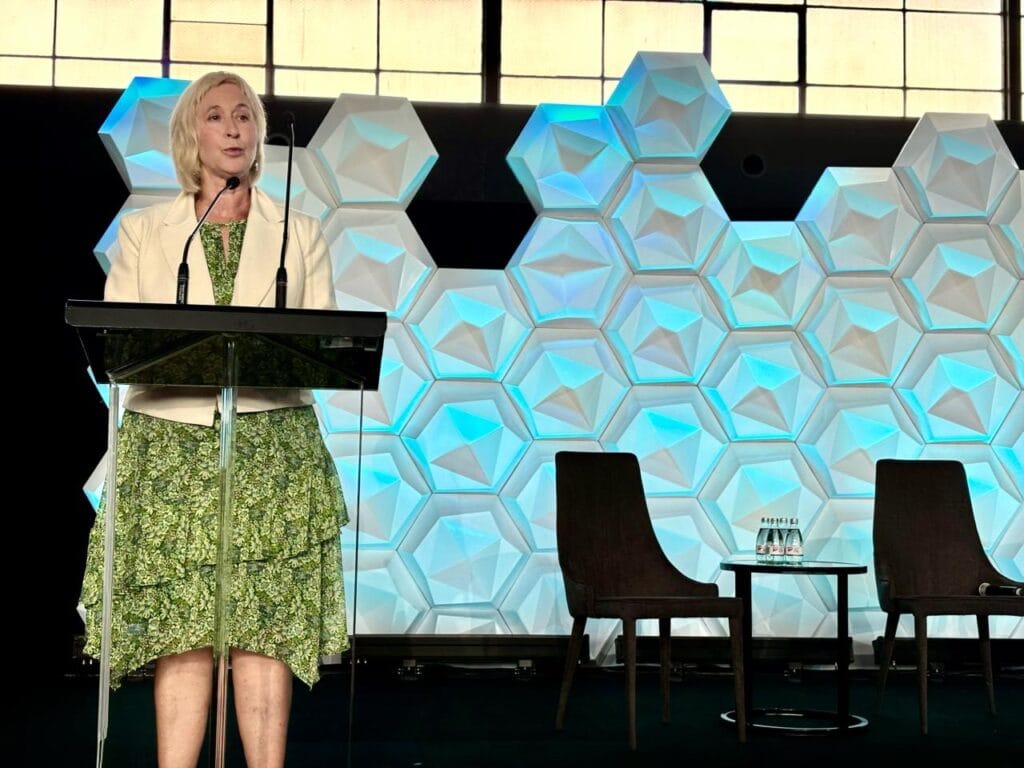
“Diversity and inclusion are vital for Victoria’s tech workforce.”
Thank you to Bronwyn Halfpenny MP for your support of the tech industry as a whole.
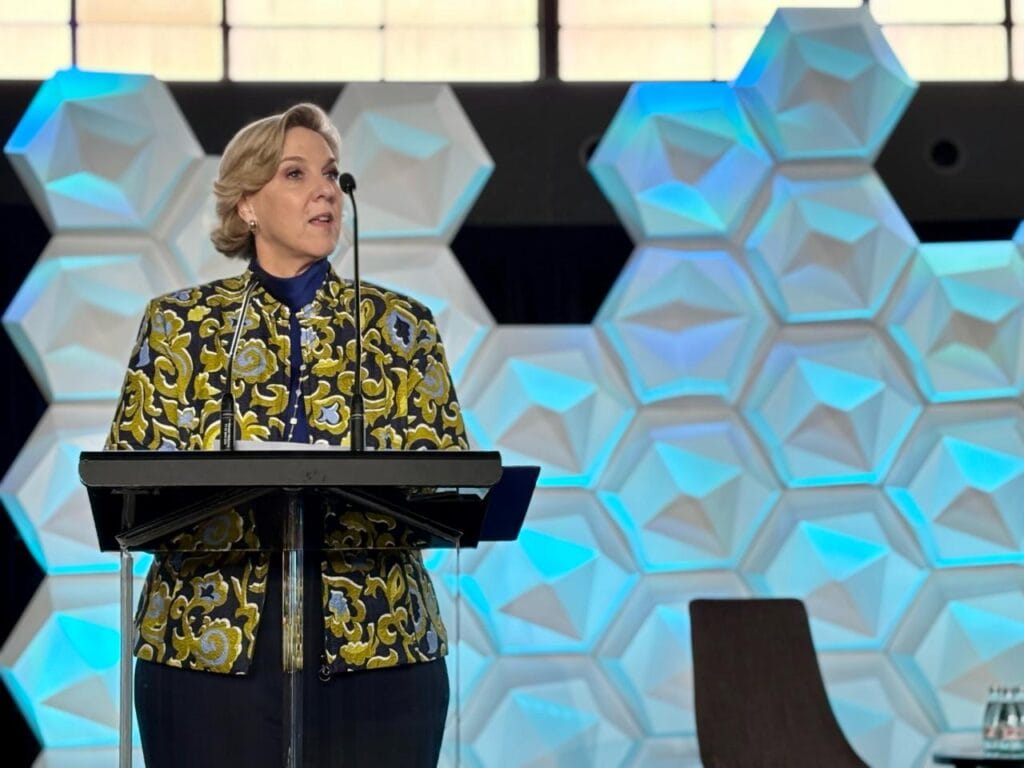
And now an address from TCA Chair, Robyn Denholm.
“The tech industry is not only embracing its role as an economic powerhouse but recognising its responsibility to be to be more inclusive. It’s about creating diverse workplaces with individuals whose voices are valued and empowered.”
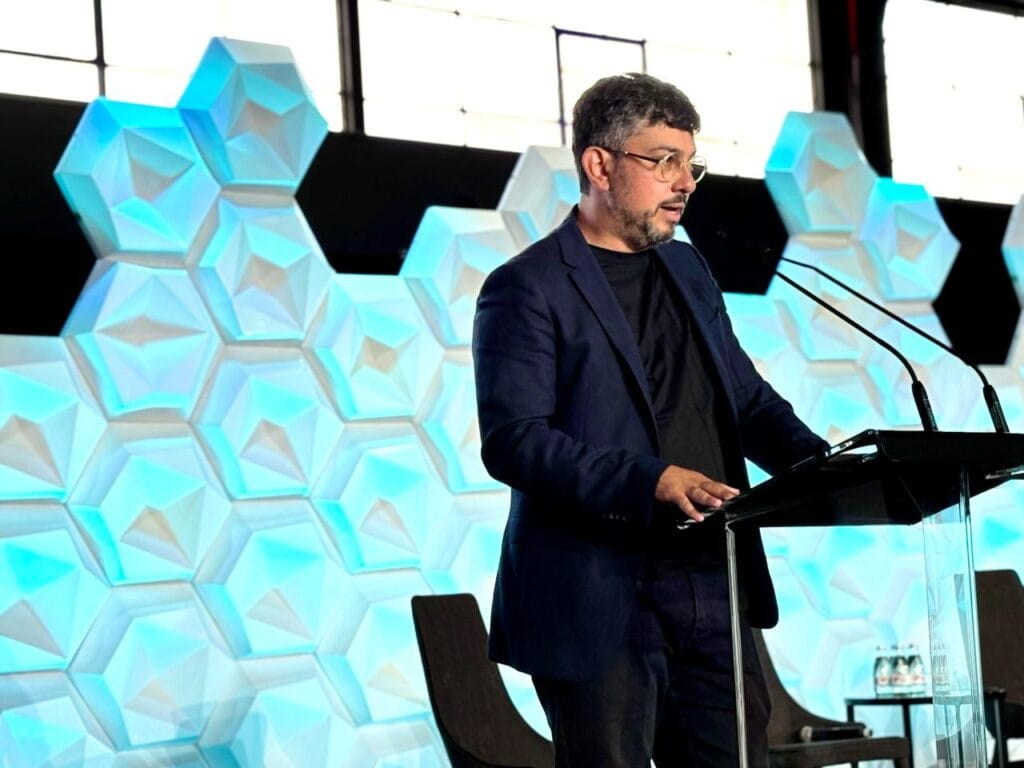
Up next is TCA CEO Damian Kassabgi.
“The success of our tech ecosystem is driven by the hard work and ingenuity of our workers as well the support of government.”
Thank you to Victoria State Government (Victorian Government), Australian Trade and Investment Commission (Austrade) and LaunchVic for your support of the National Tech Summit – Melbourne is certainly giving us a very warm welcome!
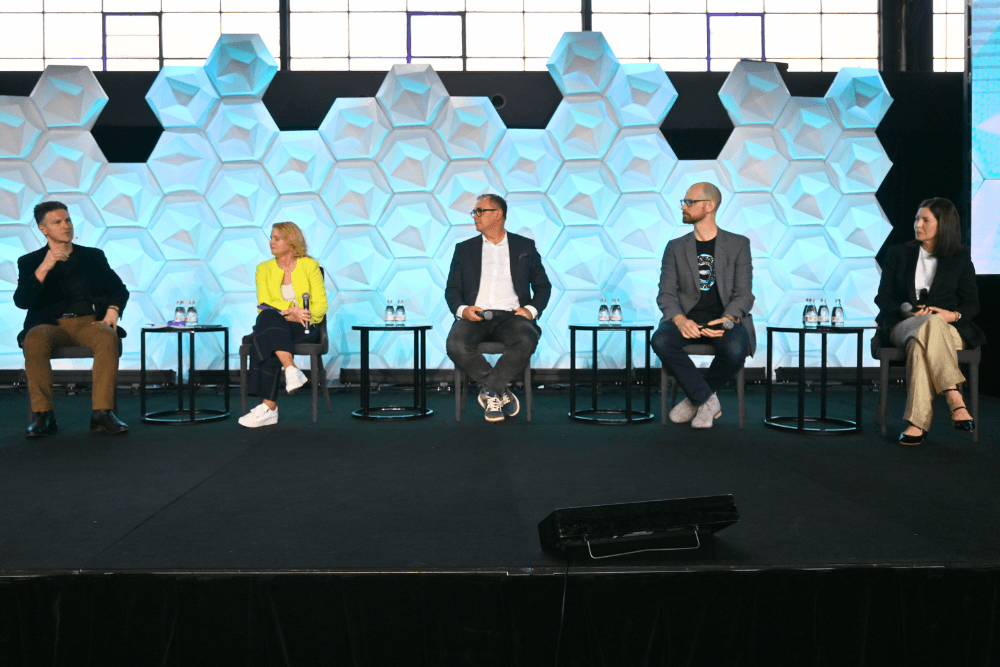
Our first panel of the day looked at how we can reimagine public services. Our key takeaways:
- Having a vision of why we need to improve government services is fundamental. Many economic benefits will come from improving trust and adoption of government services, therefore, we must design for everybody and make sure it’s accessible for all.
- Empowering must be a result of increased efficiency and inspiration. We need to go back to the individual accessing the tool – designing services around humans will lead to effective government service delivery.
- Improving government service delivery is a question of trust. How can we improve trust in digital services? We must build trust in provenance of data and in content. This will only become more important in the context of information dissemination in elections – how can we trust election-related content if deepfakes become easier to create?
Thank you to our speakers Victor Dominello, Katrina Troughton, William Scheer, James Bergin, Sophie Farthing.
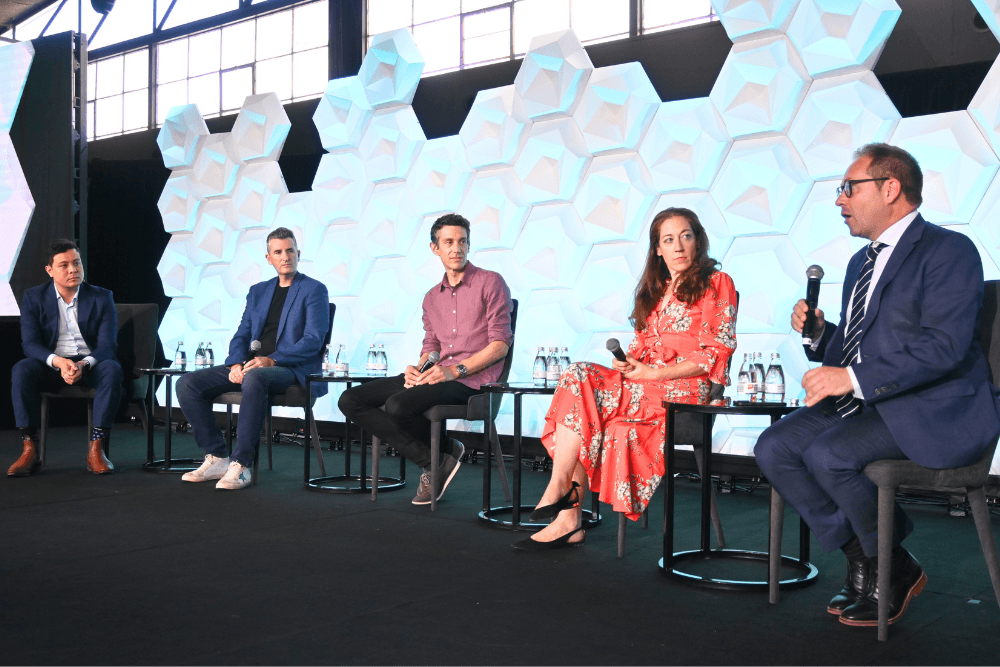
Our next panel looks at the current and future landscape of fintech regulation in Australia. According to our panellists:
- Fintech is an important part of policy – it’s one of the major ways people interact with the financial sector vs insurance or banking (which is often secondary to end-users).
- The tech development of customer-friendly and innovative tools is crucial. Australia plays key part in this role as our country leads in infrastructure for digital payments.
- In addition, we have an amazing combination of incredible talent in Australia, along with leading digital-first payment programs.
- Government should help the tech sector innovate. There are areas of technology where Australia is punching above its weight and government should encourage this to allow the field to become an international powerhouse. We must ensure that technological innovation flourishes but also works for the most vulnerable people in society
Thank you to our speakers Amanda Anderson, Dr Daniel Mulino MP, Chris Jewell, Shannon Scott, Harry Godber.
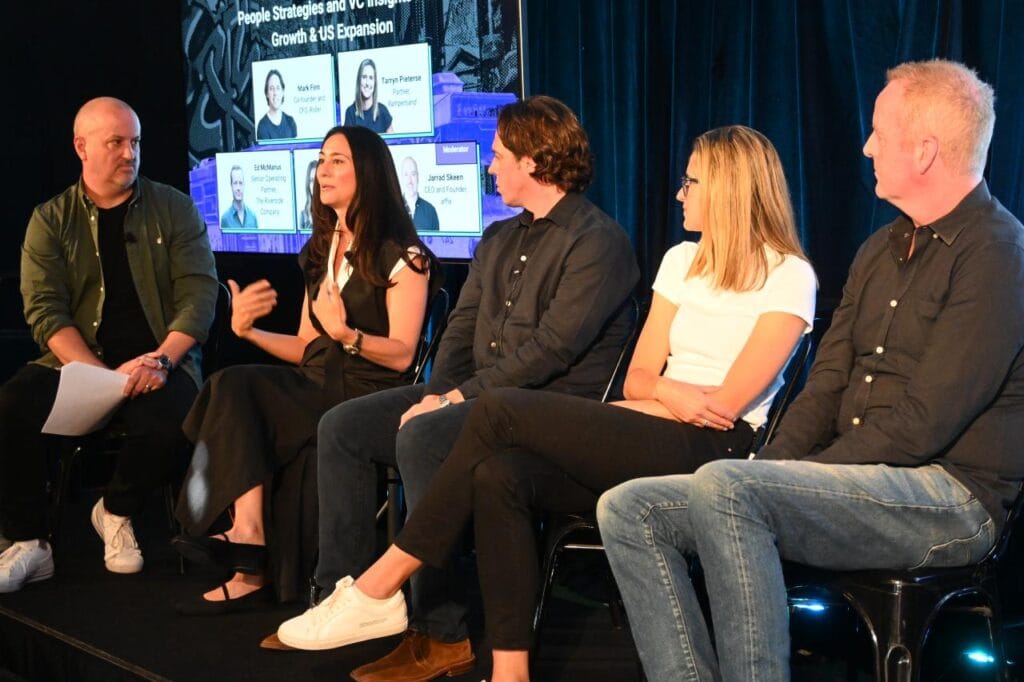
From this point, we start to break off into two streams – welcome to our workshop on scaling with purpose! The key findings:
- Good businesses are built on good prioritisation. Common mistakes that we see founders make are not realising that you’ve got to level up yourself and the team as you move into the next phase of scaling up
- Despite changing economic markets, capital is always going to be there for good businesses with good metrics. However, you have to be prepared to bring other leaders and experts in, and think about your organisation in 5 years’ time
- When you are In Australia your one market message will not work. Every single state in the US will have different laws and different tastes to think about when scaling to the Australian market.
Thank you to panellists Jarrad Skeen, Mark Finn, Taryn Pieterse, Jodie Vujasinovic and Ed McManus.
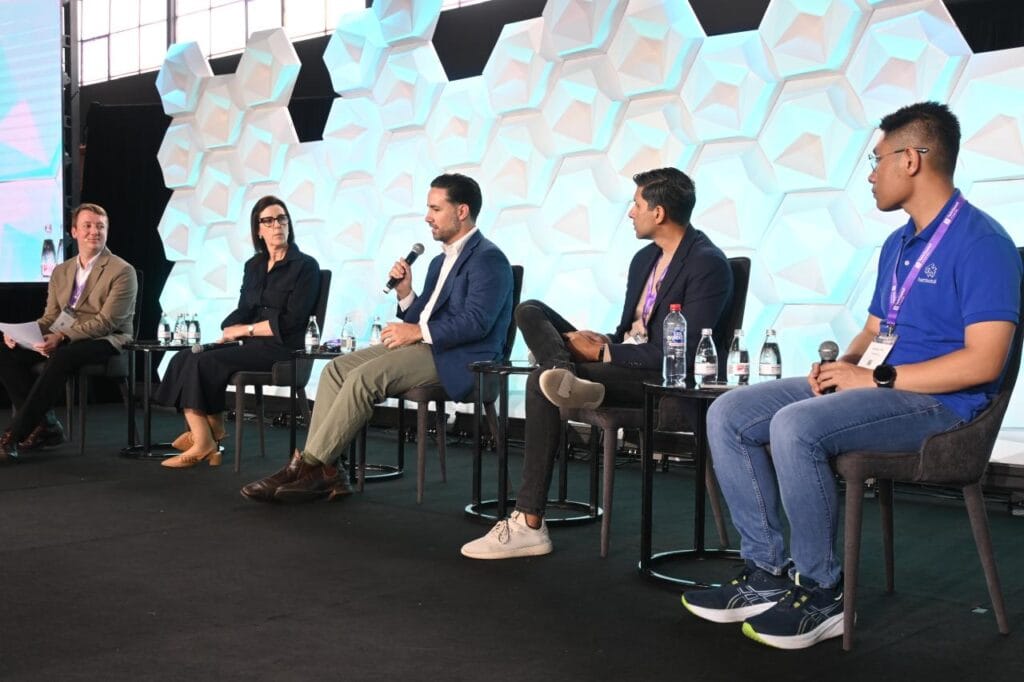
What is Australia’s Opportunity in the AI economy? In this panel, Mandala and Microsoft research shows Australia is competitive in three key areas:
1. building data centres that house the models.
2. creating custom data sets to feed into the models.
3. looking at the applications of Gen AI models.
Australians used to innovate overseas or build upon overseas innovation here. This is no longer the case – innovation can and should occur here, at home.
We need sector-specific leaders like harrison.ai who have domain-specific knowledge, and then build upon foundational models to solve hard questions, like medical diagnoses.
Ideally AI will not take humans out of the equation. Indeed, it should do the repetitive and boring tasks. This will enable highly skilled individuals to work on the pressing, important challenges of today, in various industries and sectors like healthcare, cybersecurity, etc.
Thank you to our speakers David Swan, Jo Dooley, Tom McMahon, Dr Aengus Tran and Wendell Keuneman.
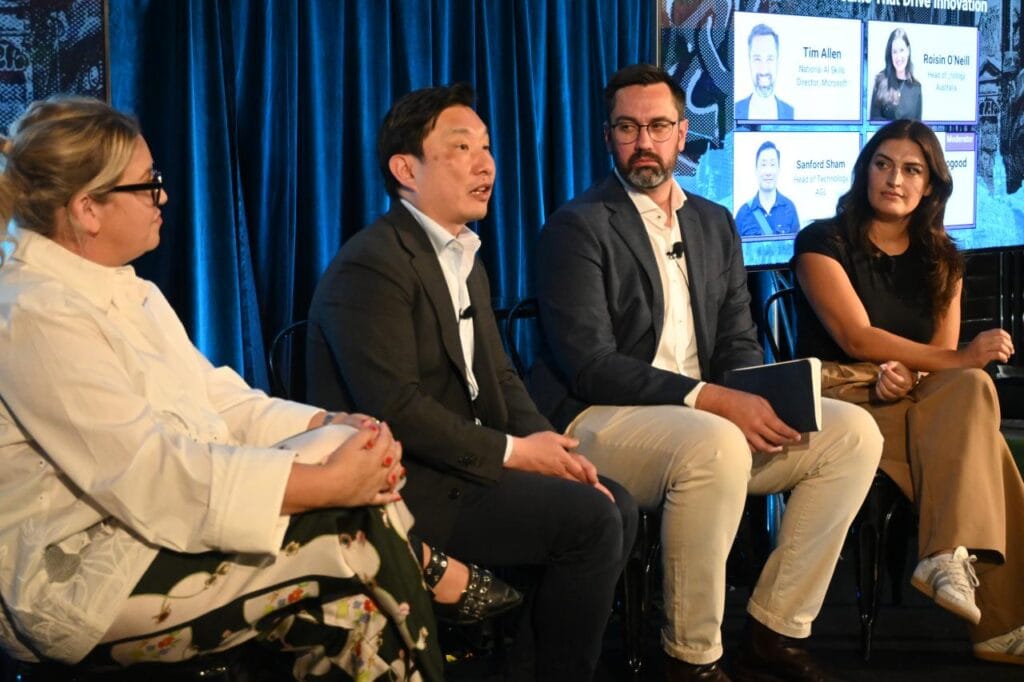
Our second workshop explored tech talent for the IT eras. In this engaging session, we discussed:
- Alternative pathways are key to building more diversity. People know about tech careers, however, many just don’t have access to them.
- What we need to remember is that all of us are in technology, technology is still a people business.
- There’s more on the AI journey ahead of us than behind us, and curiosity, creativity and critical thinking will be the key skills we rely on in an AI-enabled world.
- The worst bias we can have as companies is thinking, “I just need someone who can hit the ground running – this is when we revert to old ways of thinking.”
Thanks to our speakers Tim Allen, Roisin O’Neill, Gemma Toogood and Roisin O’Neill.
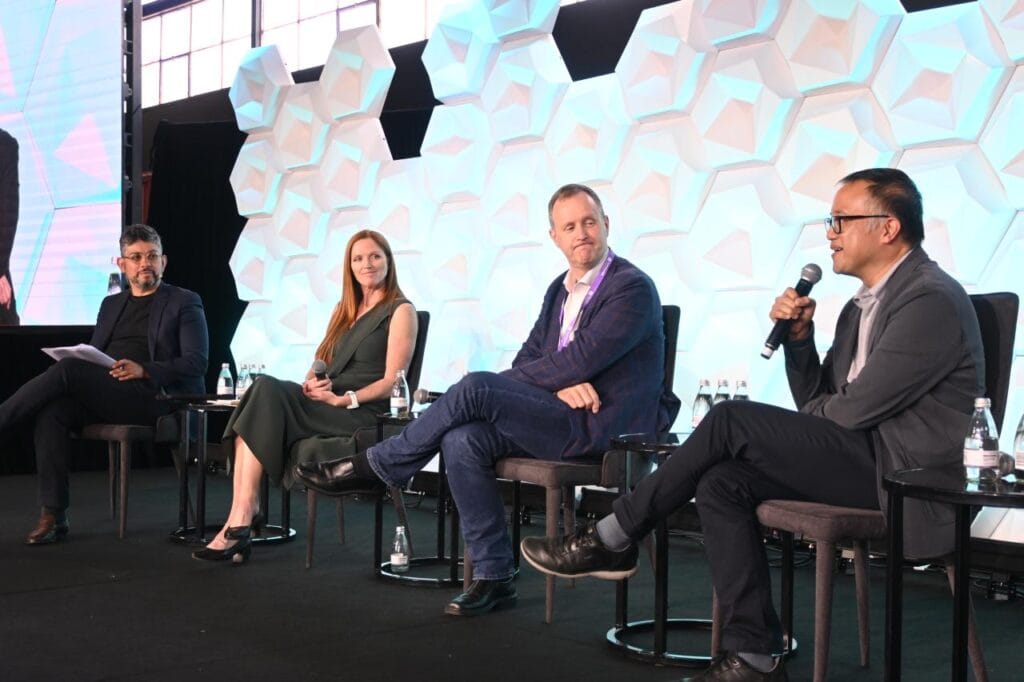
What is Australia’s data centre opportunity? Our panel found that:
- There is a race to build data centres. We need increased compute power to manage expectations around how fast streaming works, how many powerful AI models we’re able to train, and so on.
- Australia has lots of challenges in this domain – namely, the remote terrain. But this can also be an advantage – we have the land to build data centres, we just need to figure out how to do this in an energy-efficient way. This opens new questions around data sovereignty – should this data be stored locally and does this need to be a legal requirement?
- Speed of utmost importance here – who can build data centres fast, safely, and efficiently? There is an opportunity in Australia – important to show this externally to other nations.
- We need to do more to attract talented people who will work in data centres. This does not necessarily mean we need more engineering talent – instead we need folks who would work in tech in a trade-centric role. This is not a space where people need to go to the US to build a career – we have the opportunity here!
Thanks to our speakers Jamie Morse, Andrew Leong, Damian Kassabgi and Belinda Dennett.
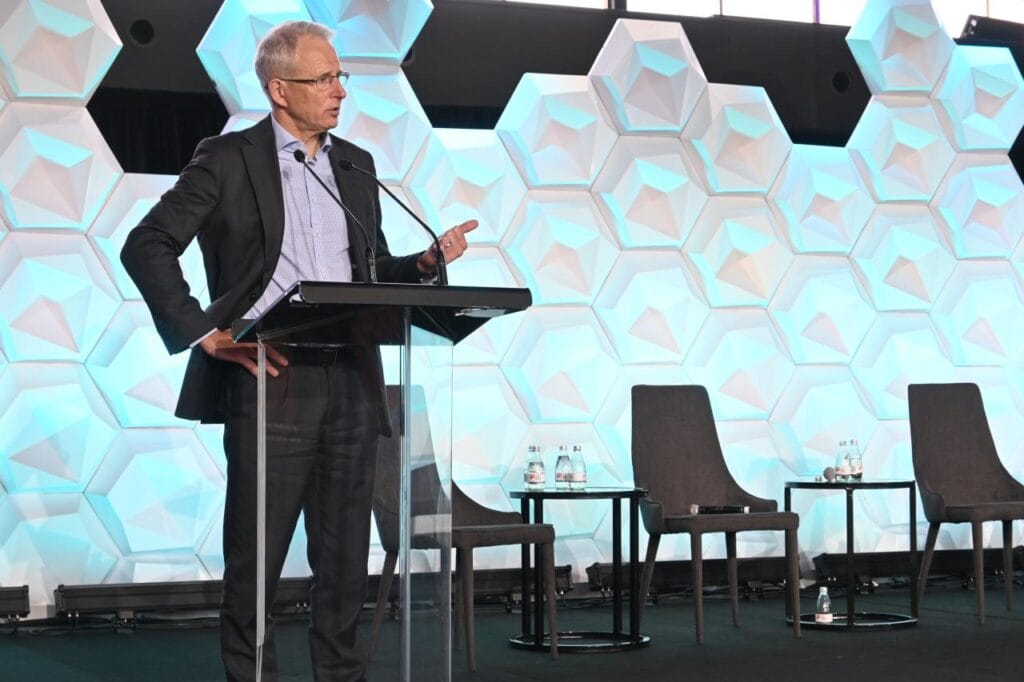
And now, a few quick words from the Hon Paul Fletcher MP:
- Human progress regarding science and technology has enabled prosperity in Australia.
- Internet-based businesses have better met users’ needs – it is now better, quicker and cheaper to do this than before. This allows consumers to have more information than before, reducing the power of market producers, which is profound in smaller economies like ours.
- The rise of the internet and software has allowed customers and businesses to have global reach – e.g. Canva, Atlassian, Afterpay. This allows Australian businesses to compete on the global market.

Have you ever wondered about alternative pathways to funding? Our latest panel discussed this crucial issue. A few words of wisdom:
- Raise money from a position of strength and leverage your strengths. This was crucial for Deputy and Canva.
- The funding landscape has changed and there are fewer IPOs happening. As such, we need to get smarter about exits for companies.
- As a private company – you can make bigger bets and control your company better into the future. However, how do you plant the seeds for your company’s future that then bears fruit? Founders need to be thinking about what seeds you’re planting.
- Partnerships are challenging – more fail than succeed. Before entering into partnerships, founders need to be very careful and ask yourselves. “What is it achieving for your business? How do you measure success?”
Thank you to our speakers Cliff Obrecht, Emma Seymour, Tim Reed, and Craig Blair for sharing your thoughts and experiences!
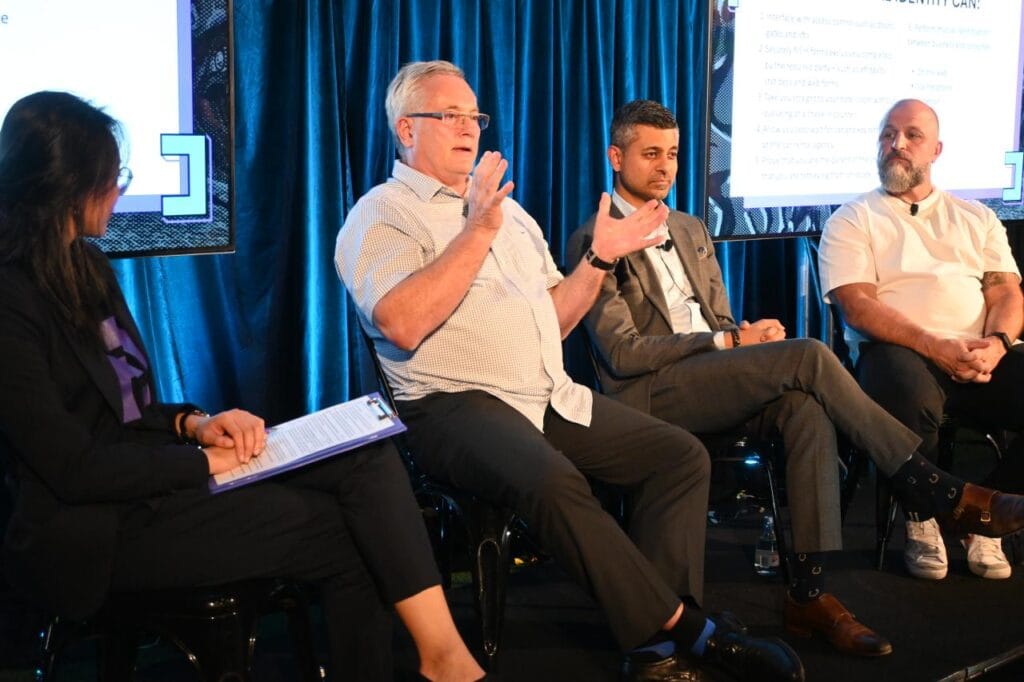
In our third workshop of the day, we explored the digital ID opportunity. Our key findings:
- Digital ID brings significant opportunities in protecting against fraud and scams, ensuring cybersecurity and privacy for individuals, supporting productivity and innovation, enhancing both citizen and customer experience – far from the visions of dystopia from Hollywood.
- Building a national digital ID and credentials ecosystem requires strong leadership, cooperation between public and private sectors, and between different levels of government.
- A temperature check and quick audience survey shows that the audience feels ‘optimistic’ about digital ID
Thank you to our panellists Dr Philip Bos, Paul Warren-Tape, Abdullah Khan and Erika Ly.
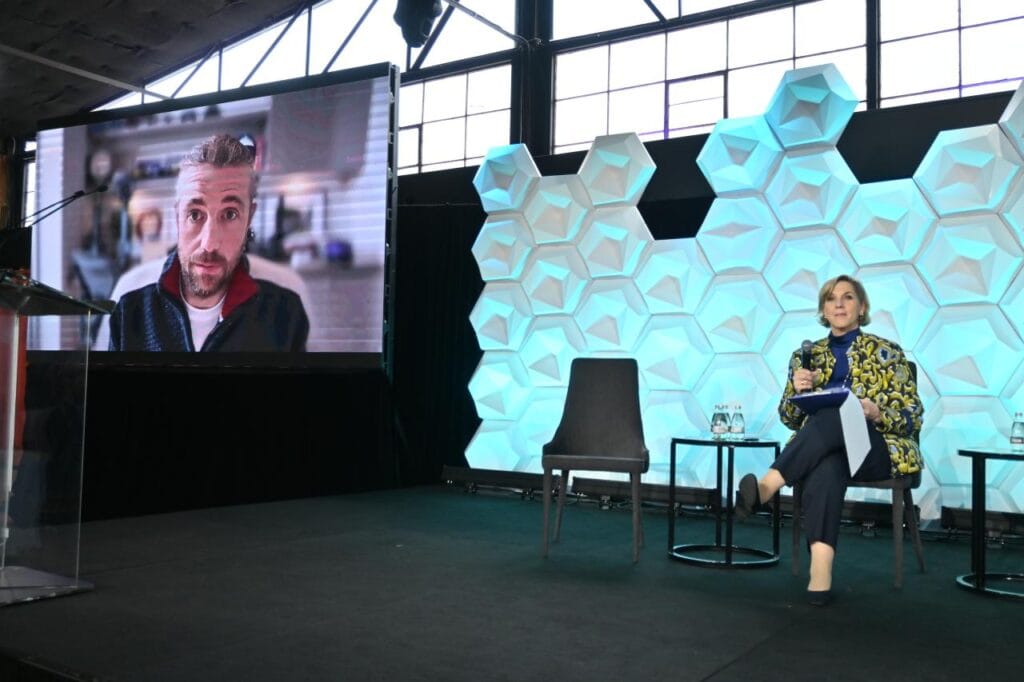
In true tech form, we had Mike Cannon-Brookes dial in for a fireside chat with Robyn Denholm in a fascinating chat about the impact of AI on skills, economy and climate. Our key takeaways include:
- We need to be light-handed with AI regulation in the short term, use AI across the economy, grow AU’s talent base to apply to a range of industries, and ensure we have a swathe of business applications.
- We have increased the size of our tech industry since the advent of the internet. However, we are being constrained by the size of our talent pool. That said, the quest for knowledge is really important – a sense of curiosity matters, and people don’t need to be SMEs before they start.
- How can we ensure that AI and clean energy initiatives work together and not against each other? There is a fallacy that AI uses a lot of computing power – therefore it will make the climate crisis worse. However, non-AI computing power is already quite expensive. Furthermore, we are seeing people working on building energy-friendly paths for AI solutions.
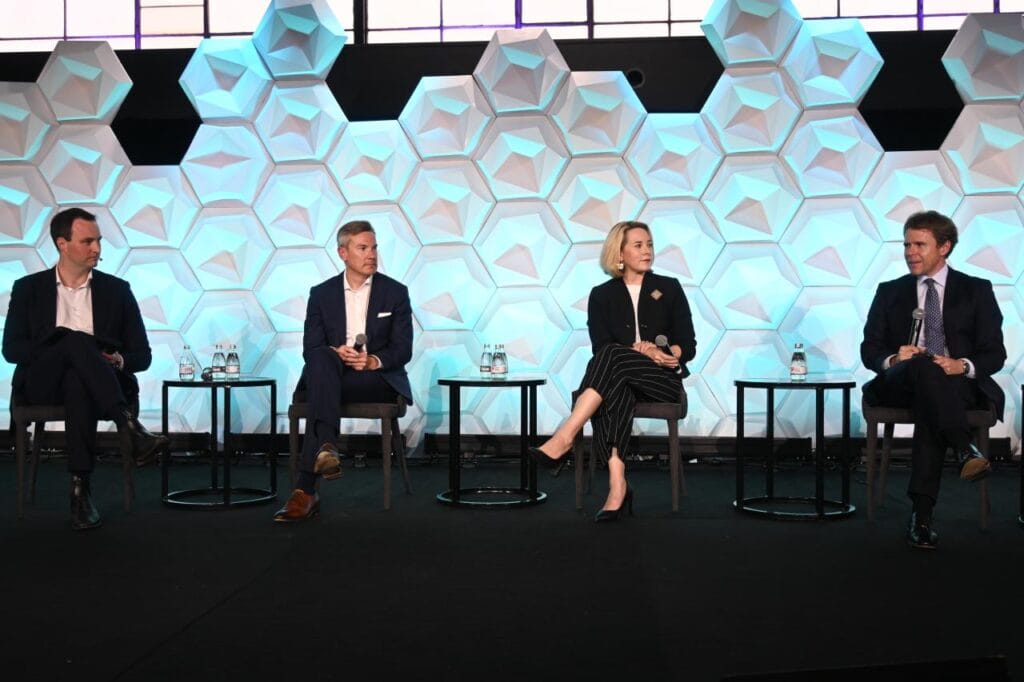
Our penultimate panel of the day looked at sovereignty in strategic tech and cybersecurity. Our top three takeaways from the session:
- Sovereignty and cybersecurity in technology are complex issues that require collaboration between government, private sector, and allies. The definition of sovereignty varies among stakeholders, and its implications differ across various types of IT systems and companies.
- Australia has significant opportunities in critical technologies like AI and quantum computing, but must balance potential benefits with associated risks. Developing these technologies can drive economic growth, but their design and deployment must consider national security implications.
- Building robust relationships between private companies and security agencies is crucial for national security. Many commercial companies unknowingly contribute to national security, and having established connections with government agencies is vital for managing potential security breaches effectively.
Thank you to our speakers Peter Anstee, Nicholas Flood, Andrew Downes and Annie Haggar.
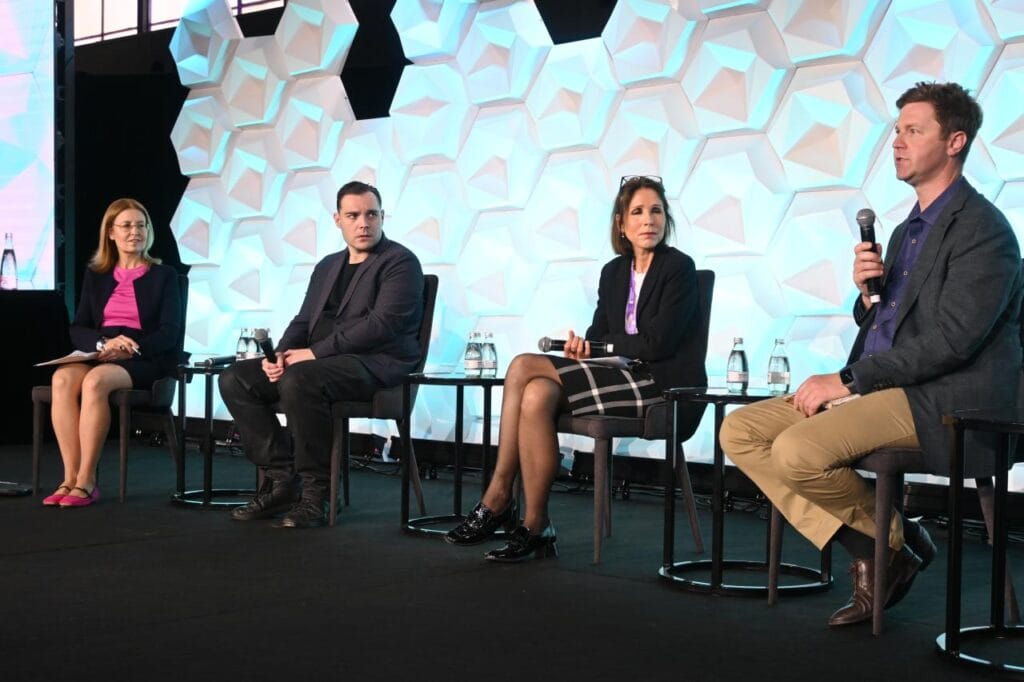
In our final panel session for the day, we examined the vital role of partnerships between academia, government and industry in advancing Australia’s leadership in critical technologies. Here’s your quick summary:
- Critical technologies for Australia include quantum computing, AI, renewables, space manufacturing, and biotechnology. These technologies have the potential to drive significant economic growth and productivity improvements.
- Developing and retaining talent is crucial for Australia’s success in critical technologies. This involves rethinking traditional education pathways, creating opportunities for skill development outside formal education, and encouraging industry involvement in vocational training.
- The ecosystem for critical technology talent requires a specific ratio: for every 1 foundational researcher, there should be 5 applied researchers and 10 practitioners. This highlights the importance of investing in foundational research to enable larger teams.
Huge thanks to our speakers The Hon Gabrielle Upton FAICD FRSN, Andrew Barnes, Sally Mccutchan, and Brendan Hopper.

At the National Tech Summit Gala Dinner we listened to a fascinating fireside chat with Scott Farquhar (Principal of Skip Capital, Co-Founder of Pledge 1%, Co-Founder of Atlassian and Board Director of the Tech Council), interviewed by Sarah O’Carroll (Editor-in-Chief of Forbes Australia).
Here were some of our favourite takeaways:
- If you want to create something, now is a really exciting time in technology.
- Is AI a disruptive or sustaining technology? For a lot of businesses, it’s been a sustaining technology as companies supplement and add to their current offering with AI assistance. However, it’s not clear yet where AI startups will have a decisive lead and start to disrupt the current status quo.
- On working from home: “I don’t think putting on a suit and waiting for the bus is the pinnacle of human evolution.” If people get together in the office, it should be for the purpose of building social bonds. The key is to ensure “Intentional Togetherness”.
DAY 3

The day kicks off with our first panel: Turning research into action. Our key findings?
Research-to-commercialisation gap: Australia produces excellent research, but struggles to commercialise it effectively. There’s a need to pair researchers with product leaders and invest in researchers to become founders, mirroring the culture of innovation and research flow seen in US companies.
Funding and scaling challenges: While early-stage funding is available, Australia lacks in Stage D funding, making it difficult for startups to scale. This often forces companies to look overseas for growth, which isn’t ideal for the local ecosystem. Superannuation funds are emerging as significant investors in tech startups, potentially filling this gap.
Talent retention and attraction: Australia needs to create a robust ecosystem that encourages overseas Australians to return and contribute to the tech and R&D sectors. Additionally, there’s a need to better market Australia’s scientific capabilities to attract and retain top talent.
Thank you to our speakers Robyn Denholm, Nicholas Crocker and Susan Travis.

What a great keynote from Mark Gibson who has travelled all the way from the US. A couple of important take-outs:
- There is a convergence of forces shaping the next evolution of the tech sector. This includes greater tech regulation, workforces calling for ESG priorities, and the advent of Generative AI.
- CapEX for tech companies setting records and growing up to 50% year over year.
- The global use and adoption of AI – with generative AI in particular – is driving demand for compute power. We need sustainable compute and the underlying infrastructure needed to meet this demand. We can consider alternative energy sources (including nuclear).

In our next panel: Science vs Scale, our speakers examined why climate tech needs investors at any stage. Here’s what they found:
- The impact of climate change is economy-wide. We need to inspire and look for solutions to accelerate decarbonisation.
- A tech app that reduces emissions is good but product-market fit and a solution that solves a problem is still crucial.
- 60% of potential, would-be founders drop out before they become companies. Why? They don’t believe someone (funders) will believe in the idea and commercial prospects.
- Advice for founders: starting and scaling up will be difficult, so do something transformational and make it a big swing.

Thank you to The Hon Ed Husic MP for joining us for a keynote! Here were our key takeaways:
- Technology and growing our Australian tech industry is crucial for our future as a nation; this is undisputed. We need to change our forward trajectory for long-term success. This is a “National mission”.
- Ensuring confidence and trust in AI adoption is crucial for us to keep up. Backing in Australia’s quantum capability will enable us to be at the cutting edge of the next technological frontier.
- For too long, Australia has looked to the world. We need to back in our confidence and belief in Australian tech, for the world to look to Australia.

What does Gen Z think about Gen AI? Jeremy Chetty, Co-Founder and CEO of StudentEdge finds that:
In this year’s report on Gen Z and AI:
- There is a 15% increase in use between 2023-2024
- 77% of Gen Z’ers have used a GenAI tool
- 86% are using GenAI used for educational purposes, 72% for tasks, and 49% for creative purposes.
- 70% of Gen Z’ers verify the accuracy of information outputs from GenAI
In 12 months, news reporting on the use of AI has shifted from fears about cheating and academic misuse to the benefits of AI for education. Most reported not using to cheat, but many believe using it as a tool for homework is not cheating.
ChatGPT remains the most popular tool and awareness of other AI models is increasing.

How are tech and people leaders developing strategies that align with next-gen expectations? In our panel: Walking the Line, our experts found that:
- Modern workplaces are shifting towards a more nuanced understanding of employee needs, moving beyond generational stereotypes to recognise the diverse requirements of individuals. This includes embracing distributed work models and creating varied spaces to support different work styles
- Drawing from concepts like Maslow’s hierarchy, successful organisations are focusing on creating experiences that promote self-determination and competence among employees. This approach, which emphasises personal growth and autonomy, is key to retention in an era where workers increasingly seek portfolio careers and rapid advancement.
- In the face of changing workforce dynamics, maintaining a strong set of organisational values serves as a stabilising force. These values act as a powerful tool for attracting like-minded individuals and shaping company culture, ultimately driving long-term success and cohesion in a diverse, multigenerational workforce.
Huge thanks to our speakers Didier Elzinga, Nikki Tugano, MAPPCP, Amy Glancey, Jess Blomfield and Philippa Watson.
